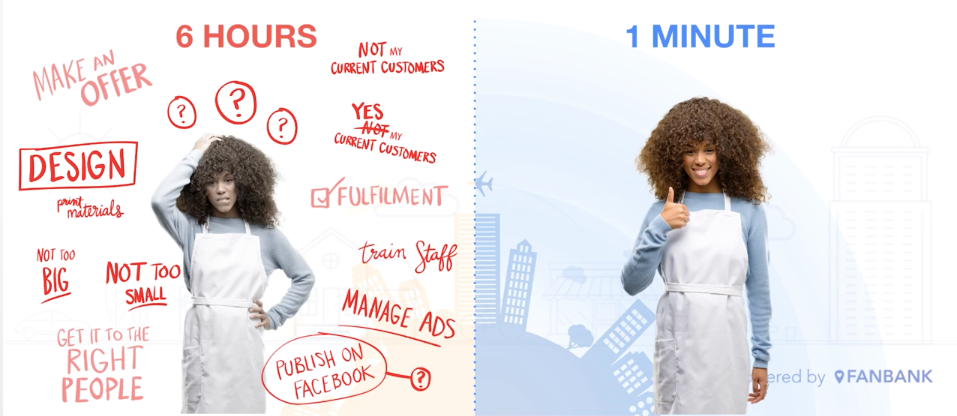National brands have drastically shifted their marketing approach in the past few years. Instead of spending millions on brand awareness campaigns, they are investing in hyper-personalized, event-based sales offers and experiences for specific customer types and holidays.
On the surface, this kind of strategy can seem out of reach for a local business owner running a small operation of a few dozen employees.
Yet, personalized, event-based sales offers have actually leveled the playing field for independent businesses. After all, who is closest to the customer and knows personal service better than independent businesses?
The 3-Step Sales Formula of Major Chains Use for Holiday Sales
Major retailers have three major strategies for effective sales personalization:
1. They participate in key events
Wall-Street backed businesses have started identifying key seasonal events or holidays that are the most relevant to their business. Often, retailers or brands will create their own holidays or trending days to generate event-based demand. For example, one we all know is the Small Business Saturday event, which is a holiday that was started by American Express. They created it as a way to associate credit card purchases with the holiday shopping season on a local level.
2. They build customer-focused strategies to attract, boost, and retain business
Major brands then use those holidays to appeal to different types of customers in their customer base. For example, Starbucks leverages Saint Patrick’s Day each year to market a special Shamrock Frappuccino on its menu and create timed demand that appeals to a wider range of consumers who might not be regular Starbucks customers.
3. They deliver personalized offers to key customer groups
Major chains dig deep to understand which types of customers they want to attract and run different offers for different customer types. The example below demonstrates how major chains use personalized time-based offers to appeal to customers during key events.

Applying the Big Chain Formula to Small Business Sales
More than ever before, small businesses can apply these same tactics to drive sales for their specific business at the local level. Here’s how to poach the ideas of big chains for small business success:
1. Select Events and Think Beyond Big Holiday Sales
As a small business, event-based offers enable you to further deepen the close connections you already have with your customers by associating your business with a holiday or event that different customer segments care about. By tying an offer to an event on the calendar that celebrates something your customers already care about, you can capitalize on their excitement and create a mutual connection between your brand and their interests.
Start by looking on the calendar to see what events are on the horizon and which ones:
- Appeal directly to your core customers.
- Are relevant to your direct neighborhood community.
- Attract stretch customers who don’t normally shop at your business.
For each goal, selectively build an offer calendar by considering national days and other niche holidays. Instead of competing for attention during a major holiday, choose to put efforts into celebrating a more niche one, like National Teacher Appreciation Day, and other events that can drive new business with specific customer types.
2. Determine Your ROI-Positive Holiday Sales Offers
It’s also important to remember that event-based offers aren’t just discounts. An event-based offer means making a deal with a customer that works for both your ROI and their interests.
As a general rule of thumb, we recommend different pricing for different customer types when deciding which offers you will run. Below is an example of two different offers Fanbank members ran for their business to coincide with Small Business Week. Although both customer types were exposed to the offer on their social media channels and email, they both received different offers in the same timeframe.

3. Set Reasonable Goals for Time and Effort
For the time-strapped business owner, running an event-based offer to reach those goals doesn’t need to take up a huge chunk of time. Planning event-based offers are all about boosting your brand, not creating a blow-out effort.
To keep things manageable, we recommend aiming for two to three event-based offers per quarter. With a set timeline, it’s possible to spend just one hour a week on event-based offers. We suggest at least a six-week timeline that includes the following.
Your event-based offer timeline
- 6 weeks before: Set a budget for your event-based promotions and determine your offers.
- 5 weeks before: Determine where you’ll be promoting offers (in-store, social media, etc.).
- 4 weeks before: Begin working on graphic design, flyers, social media posts and more.
- 3 weeks before: Let your staff know about upcoming offers and how you expect that it will impact business in that timeframe.
- 2 weeks before: Finalize marketing materials and identify how offers will “go live.”
- 1 week before: Train your staff on how to fulfill promotions and set up the offer details in your POS.

With this timeline, a small business owner could realistically launch eight event-based offers per year spending just one hour a week of work on the project — a much more manageable number to take on.

Event-based offers not only help local businesses compete with national chains, but they can enable you to connect more deeply with the customers in your neighborhood on an ongoing basis. Plus, they keep more money in the community: for every dollar spent at a local business, over 50% more of the money from that purchase will stay in the local economy than if the same item or service was purchased from a national chain using the same tactics.
Want to learn more? Hear what Fanbank CEO Mitch Jacobs has to say about event-based offers in our webinar Win Sales Using Seasonal Events.”
Watch Webinar: Win Sales Using Seasonal Events
Learn how to use the Fanbank platform to automate event-based offers.




